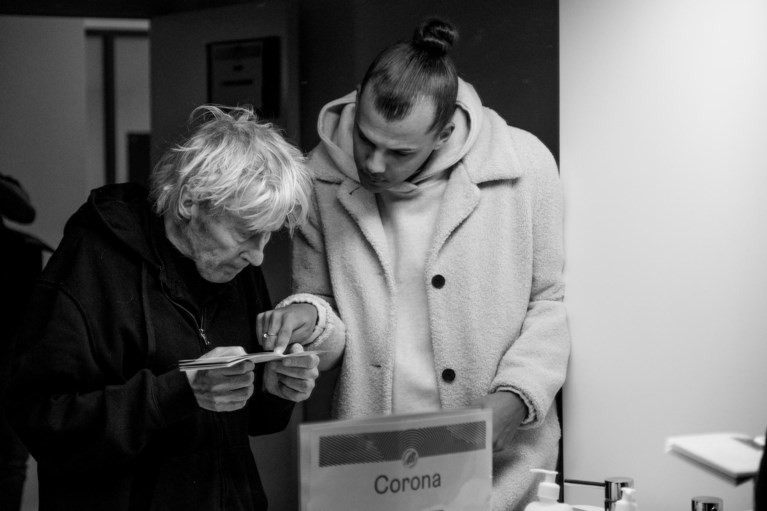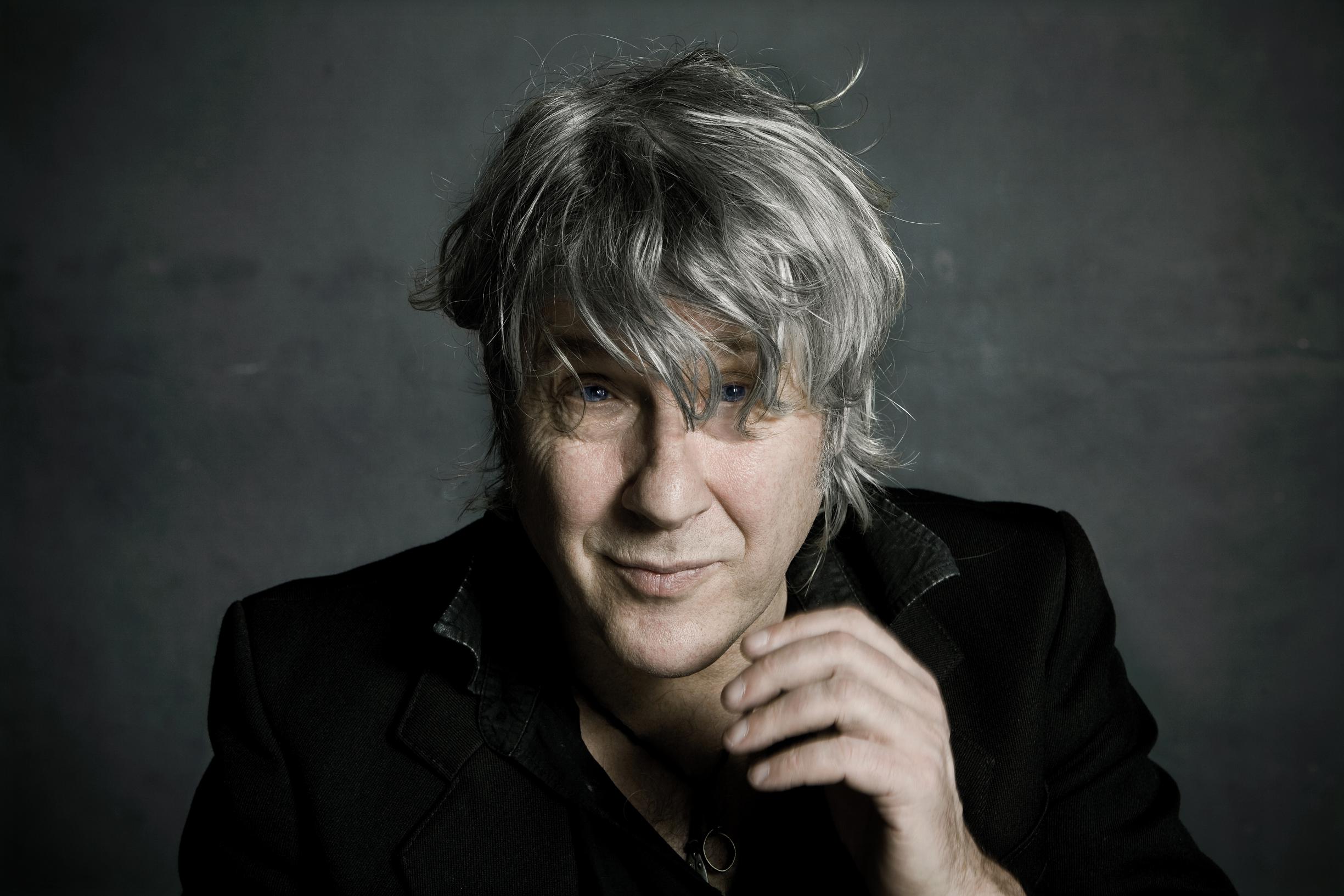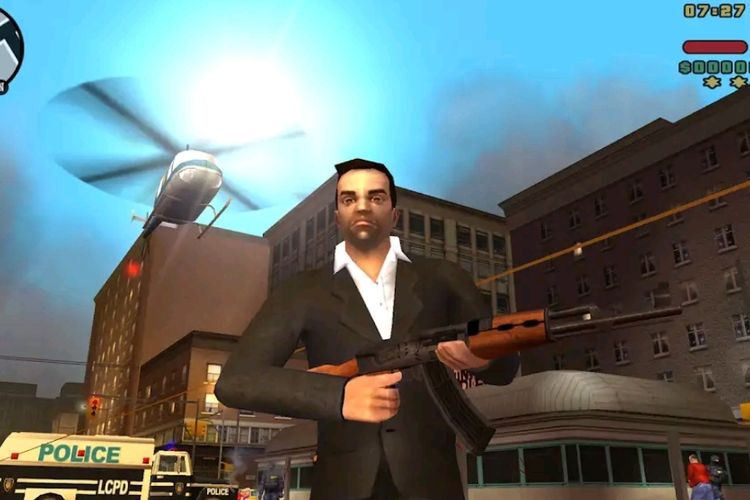Arno Hintjens died in Brussels at the age of 72. He was a bon vivant, a stage animal and an authentic singer. Now others will have to sing that life is ‘magnifique’.
–
The most beautiful is no more. Arno Hintjens died today at the age of 72 in his apartment in Brussels, surrounded by his family. Many will miss him. In recent weeks, Flanders has sympathized with its last struggle: he received a ribbon from the king, and a firm pat on the back from the listeners of radio 1, who took his song ‘Les yeux de ma mère’ to the top of their annual Classicsreferendum votes.
His ultimate concerts in Brussels and Ostend showed a man standing on stage in pain and saying goodbye as we have experienced him for fifty years: as a singer with a completely individual style. Nature did not give him a perfect singing voice, he could not read music and his instrumental knowledge was limited to the harmonica. But the stage was where he felt best, and where his audience felt best.
No one could sing life more rightly to the end than ‘oh la la la… it’s beautiful.’ Though that became increasingly difficult.
unequal struggle
It was well known that he had pancreatic cancer. And even though he was there early in the fall of 2019, the battle was uneven from the start. In his Brussels apartment, a handwritten poster hung on the wall, with the pick-me-up ‘There is always light in the darkness’. That gave him strength to record the piano album Vivre which appeared in May 2021, but the rest of that year became a calvary for him, with temporary immobility. Two pillars in his life, his music partner Paul Couter and his ex-teacher Hubert Decleer, died shortly after each other.
When he briefly performed for Radio 1 again in early 2022 after many months, he had heard the day before that there was no more hope. But he sang and asked what he would need: ‘Give me power, de la force’ (‘Haha’).
• Interview after the Radio 1 Session: ‘This is why I am in the world: to entertain people’
What will remain is an oeuvre of 24 studio albums – and a 25th will follow shortly. About 260 original songs, about fifty covers and duets, a few film roles and the memory of a great entertainer. How many thousands of concerts has he played in those fifty years? How many interviews he gave in which he talked about the glory of Ostend and the ideals of the sixties, his faith in rock ‘n’ roll, and his great fear that the 1930s will return.
It is the story of a man who turned his limitations into his strength, who loved the people, and more importantly, his freedom. He didn’t stop singing it to the end: ‘I want to live in a world/ where one doesn’t have to search/ search for beauty/ search for truth.’
• Review ‘Vivre’ | Intimate appointment with a sick man
Wild Ostend
Arno was a child of the 1960s. He grew up in the port city of Ostend, which at the time was internationally notorious for its nightlife. In the iconic year of 1968, Arno was 19, a dandy with long hair and tons of charisma. But also a weirdo, even as a child. He developed tics and never stayed in one place for long, as if he was easily bored. The fact that he stuttered and was nearsighted often put him out of the group at school and in circles of friends.
Music was his lifeline, and he was always grateful to Hubert Decleer for putting five old blues records into his hands at the Atheneum. Obviously, it wasn’t that he dropped a good job as a chef to choose a risky profession as a musician. His father, a straightforward trade unionist, especially had difficulty with this. His mother, more artistically oriented, supported him. But for years, until after his 40th birthday, Arno was left with nothing. His belief in himself, often on a self-centered basis, was his quiet strength.
• Posthumous Hubert Decleer | Mentor of Arno, teacher in Buddhist revival
Arno felt great in the Langestraat and among the artists of Ostend. He also often went to London with his ‘middle class and blue eyes’ girlfriend Sonja Van Hee, who made him worldly wise and gave him a harmonica. In 1970 he went on stage. Mostly local memories of the bands October and Freckleface remain. Tjens Couter, his band with guitarist Paul Decoutere, was more successful: they toured in England and the Netherlands and recorded two albums. The motto: ‘I do what I like to do/ in order to be happy/ I don’t have to do/ what everybody else is doing.’
– Arno on the beach of Ostend. Photo: Danny Willems
Lightning and thunder
His star really started to shine in 1980. Arno wanted to make European music and gathered a fascinating band around him that fused funk, rock and electronica. He had his rhythm tandem (Ferre Baelen and Rudy Cloet) play the grooves of James Brown, and to get avant-garde ‘new wave’, he took a trained keyboard player (Serge Feys) from a ball orchestra and a top guitarist (Jean-Marie Aerts ) from a cabaret tape. A completely unique composition.
That band was lightning and thunder at the same time in the Belgian music landscape. TC Matic made four albums and gave crushing concerts, but the Belgian record company was not ready to offer a structural framework. When the story ended in 1985, no one knew whether the band had now been ahead of its time or had never been able to fit into a time. But Arno, almost 40, was already looking ahead, looking for the sound that could put him on the map.
His story finally fell into place in the early 1990s, thanks to some foreign experience. The German Holger Czukay, of the legendary krautrock band Can, helped him up Charlatan (1990) to a new, very personal style. The French record boss Emmanuel de Buretel brought him to his new, wealthy label Delabel. The Alsatian Cyril Prieur became Arno’s first real manager. Money was invested, there was structure, and Arno became a star in France too.
order in chaos
What followed are the things of life. Arno fathered two sons, Mathias and Felix, but a family structure was not his for long. The singer lived from performances. Even in his early years he hated luxury, and even when he was much broader, he didn’t even think about furnishing his apartment better than that of a careless student. When he wasn’t performing, he was making records, and when neither could, he was so bored that chaos took over and he lived up to his reputation as a night knight.
The alternation of records and tours brought order to his life, but he also sometimes looked for ways out, such as with the blues project Charles & Les Lulus, which, to the surprise of his record company, received so much acclaim that he continued with it for a year and a half. In 1996 he made French-style, his major breakthrough in France. From then on he sang half in French, which wasn’t so strange: at home French chanson had been omnipresent, and his grandmother liked to sing Edith Piaf.
In 2002 France made him Chevalier des Arts et des Lettres. In his own country, he received a Zamu for his entire career, and finally the decoration of Officer in the Order of the Crown, but a Flemish culture prize was never awarded for ‘the last Belgian’. Arno was a bit of an anti-BV, too raw to please, but smart enough to see the need for publicity. Critics thought he was repeating himself, but you could also say that he had become his own style. Nevertheless, his last albums were darker: he cursed the changing political climate and the formatting of rock music. He suffered from nostalgic flashbacks and depression.
Looking forward
In his last months he was much preoccupied with the past, much to his chagrin, because he preferred to look ahead. It was touching how he was always looking for new jobs: he even tried to pull off a duet with Mireille Mathieu, a flame from his youth, even on his deathbed. The successful album Vivre was an idea of his manager, who had been insisting for years that Arno would transform himself into a kind of crooner one more time. That Vivre was such a great success in Belgium, the singer never expected.
He got a lot more out of his career than almost anyone thought when he sang his first blues songs as a young boy, with an angry high-pitched voice. That voice sank every year and became a gnarled instrument that was instantly recognizable, and spontaneously evoked comparisons to Tom Waits. He sang ballads like ‘Les yeux de ma mère’, his retirement song, but also kept pumping TC Matic songs into his concerts until the very end, as if to say: ‘And yet we were fantastic!’
Arno fell ill in the fall of 2019. He put up the fight he had to fight, and chemotherapy and radiation bought time for those last five performances, where fans bid farewell to a thin, battle-weary man who had one more time. squeezed everything to with a laconic ‘Thank you for everything, bye-bye’ to step away. And in the end he actually recorded nine songs that were on a final album, named after the Ostend Lighthouse District ‘Opex’, will stand.

–
Arno with Stromae. The two released ‘Putain, putain’ together in the AB in February.
Photo: Danny Willems
Death, he could live with it, he said, grateful because he had had a great life. He didn’t seem afraid, except for pain. He was drawn to the photos in his apartment: of friends like Michel Piccoli and Jane Birkin, of his grandmother Marie-Louise who raised him with them, of his Buddhist friend Hubert Decleer, who had so inspired him before him last summer. And especially from Lulu, his mother who had lost him when he was 24. She too had cancer.
–


